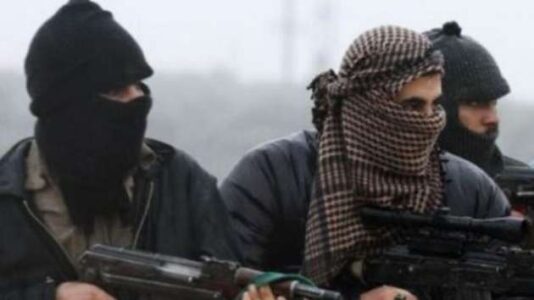
Al Qaeda terrorist group is back in Afghanistan
Now that the Taliban have seized power in Kabul, the situation in Afghanistan is, for the moment, even more, complicated than before the attacks of September 11, 2001, in the United States, which motivated the American military intervention [NATO as well] in this country, which had, in particular, the objective of destroying the bases held by al-Qaeda.
At the time, the US operation could rely on the “United Islamic and National Front for the Salvation of Afghanistan” [also known as the “Northern Alliance”], which then controlled the northern part of Afghan territory. However, after twenty years of NATO’s military presence in this country, this opposition to the Taliban movement no longer exists.
During a press conference given on August 17, NATO Secretary-General Jens Stoltenberg blamed the now ex-Afghan authorities of being somehow responsible for the situation in which now is Afghanistan.
“What we have seen in recent weeks is a military and political collapse with a speed that was not anticipated. Parts of the Afghan forces fought bravely. But they were unable to secure the country. Because, in the end, Afghan politicians failed to stand up to the Taliban and achieve the peaceful solution the Afghans desperately wanted,” Stoltenberg said. “This failure of Afghan power has led to the tragedy we are witnessing today,” he insisted.
Undoubtedly there is a part of truth in this observation. However, this explanation is not enough to explain what Armin Laschet, the Christian democratic pretender to the succession of Angela Merkel, qualified as a “historic debacle for NATO”.
In Afghanistan, “initially designed to fight the mechanized divisions of the Warsaw Pact, NATO finds itself bogged down in the face of a weakly armed but highly motivated insurgency, and unable to adapt to this new type of conflict,” wrote Colonel. Michel Goya, in 2011. “This crisis, both doctrinal and military, finds its roots both in the evolution of the missions entrusted to the Alliance, in particular from 2006, and its expansion towards control of the whole country.
And if the contributing states speak with one voice of the need for a common strategy, based on governance and security, employment restrictions and domestic policy issues reduce the effectiveness of NATO, as pointed out the low number of troops deployed until the American takeover and the Obama plan from 2009,” he added. Also, “NATO will not escape the scrutiny of its engagement in Afghanistan,” Stoltenberg admitted.
“We need to have an honest and lucid assessment of NATO’s engagement in Afghanistan. Despite considerable investments and sacrifices on our part over two decades, the collapse was swift and sudden. Many lessons can be learned,”admitted the former Norwegian prime minister.
At the same time, he also underlined, “we must also admit the progress recorded” since the flow of NATO’s intervention, which was aimed first at“ the country to serve as a refuge for international terrorism”. after September 11, 2001. “In two decades, there have been no organized terrorist attacks from Afghanistan on the soil of Alliance countries,” said Mr. Stoltenberg. will however recall that the Jund al-Khilafah organization, close to the Haqqani network, very active in Afghanistan, claimed responsibility for the attacks committed by Mohammed Merah in 2012].
However, continued Mr. Stoltenberg, “those who take power have a responsibility to ensure that international terrorists do not re-establish themselves” in Afghanistan. As a reminder, the Taliban made this commitment on February 29, 2020, by signing the Doha agreement they had just negotiated with the United States.
The fact remains that, according to United Nations reports, the al-Qaeda network has already returned to Afghanistan, in the footsteps of the Taliban. And he is not a priori the only one. President Macron recalled this during his speech on Afghanistan on August 16.
“Terrorist groups are present in Afghanistan and will seek to profit from the destabilization. The United Nations Security Council will therefore have to provide a responsible and united response,” Macron said, adding that he had just discussed on this point with [British] Prime Minister Johnson. He insisted: “Afghanistan must not once again become the sanctuary for terrorism it once was. It is a stake for peace, international stability, against a common enemy: terrorism and those who support it. In this regard, we will also do everything so that Russia, the United States, and Europe can cooperate effectively because our interests are indeed the same.”
During his press conference, Mr. Stoltenberg argued that “the Allies have the capabilities and the vigilance to deal with future terrorist threats from Afghanistan”. Does this mean that counterterrorism actions can be considered in the future? To this question, he answered in the affirmative.
“The Allies will remain vigilant and we can strike terrorist groups from a distance if we see these terrorist groups trying to establish themselves, plan and organize attacks against NATO countries,” Stoltenberg said.
However, with the Afghan territory being landlocked, planning interventions against terrorist groups will be complicated. Unless Pakistan gives its agreement to possible airstrikes [which is far from being won]. Or that of Asian countries Central, such as Tajikistan and Uzbekistan, acquired from Russia, agree to serve as departure bases for missions over Afghanistan.
Source: Bulgarian Military





